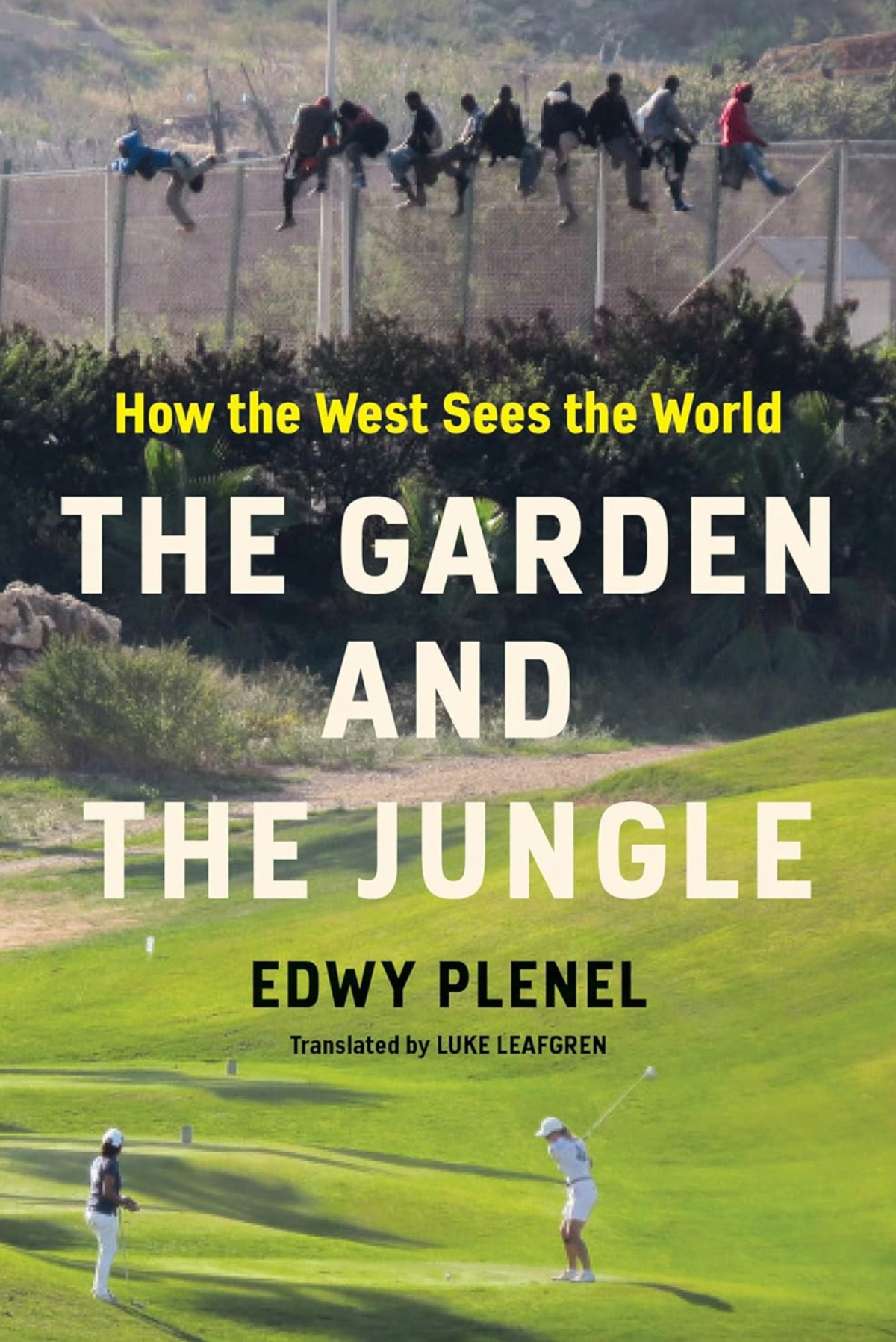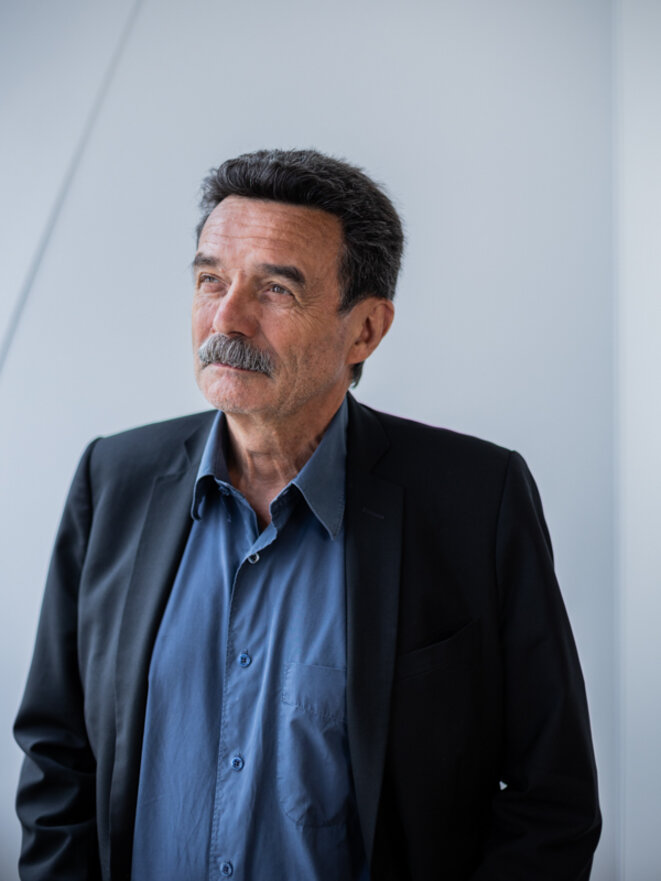The Garden and the Jungle was published in France in September 2024. This address to Europe on the idea of how it sees the world reaches beyond the European continent to the entire West, of which the United States of America is the dominant power. It was written in the shadow of two ongoing wars, that of Russia against Ukraine and that of Israel against Gaza, and in the ever-present memory of the catastrophes for which Europe is responsible, from colonialism to Nazism. Its goal was to question those imperial claims to superiority, domination, and power which have never ceased causing barbarism to appear in the heart of civilization.
Two months later, the election of Donald Trump to a second term as president of the United States served to justify this alarm. Ever since January 20, 2025, the empire has been striking back, and it’s an empire of radical political evil: the assertive denial of any shared humanity, the universal rejection of equal rights, the international affirmation of the law of the strongest, the proclamation of power without limits or principles. The second presidency of Donald Trump carries North American imperialism to its apogee by adopting, without doublespeak or false pretenses, the all-encompassing goals of conquest and domination, of greed and self-interest, contained within the claim to the greatness—economic, military, cultural—of the United States of America with respect to the rest of the world.
The reference to the cinematic saga Star Wars (that interstellar battle in which The Empire Strikes Back is the fifth episode) is fitting, given that science fiction is the mental universe of the new feudalism that, under Trump, has conquered the levers of power in Washington: a technophilic oligarchy launched by the digital revolution to a stratospheric degree of wealth that grants unwavering confidence in the impunity of its power. Just like its most emblematic representative, Elon Musk, who purchased his place as unelected co-president, it stands explicitly with the dark side of the Force.

Agrandissement : Illustration 1

Its guiding principle is limitlessness: nothing can hinder its desire on every register: power, wealth, conquest, control, extractivism, and so on. The greatness it claims is a catastrophe foretold. Make America Great Again, the MAGA that the campaign took as its single slogan, means that nothing must oppose the will for power of the United States of America. Not only over the planet Mars, but also sovereign nations—Canada, Panama, or Denmark by way of Greenland. Not only undesirable humans, those migrants whose deportation is being organized, but also foreign goods, in a return to the most antiquated trade wars. To say nothing of democracy itself, already thrown by the wayside and reduced to the simple legitimacy conferred by elections, abandoning all other checks and balances.
Trump’s presidency is not the new avatar of some social conservatism. It embodies a savagery emerging within the heart of civilization, just as happened in Europe, when fascism and Nazism put the fate of all of humanity at risk. This flat-out counter-revolution takes precise aim at the jolt that occurred the day after the Second World War. The moment when awareness of the catastrophes and ravages of unbridled power—as testified by the millions of victims of genocide and other crimes against humanity, which would henceforth receive legal definitions—led to the proclamation of universal human rights and the invention of the diplomatic rules of the United Nations.
Trump says it and does it: he wants to break up with precisely this heritage. Against the promise of equal rights that has unceasingly inspired battles for emancipation, he opposes the law of superiority, which takes identity as its pretext, anchored in the soil and the blood, in blind chance of birth and lines of descent. No more common humanity, no more international community, no more solidarity and fraternity: what’s right is only what I judge to be good for my people, my nation, my power. Nothing else. Such a political program is fundamentally separatist: it breaks with the ideal of a shared world, where human beings, just like the nature of which they are part, are in relationship, ineluctably interconnected, intermixed, and interdependent.
Apartheid is its watchword. It was in 1948, the same year of the Universal Declaration of Human Rights, that the Afrikaner regime of South Africa enacted its laws of separation. The establishment of this racial separation, making a distinction in all aspects of daily life—housing, work, movement, marriage, and so on—between the white population, decreed to be superior, and other categories—Blacks, Indians, mixed race—, echoed the paradigm of the world that gave birth to the European disaster: the hierarchy of humanities that gives rise to the colonial and imperial lunacies of conquest and grandeur, and which inevitably proceeds to deny, pursue, repulse, or exterminate ‘the other’, erasing them in every instance.
The presidency of Donald Trump proclaims itself to be an apartheid empire, adopting its ideology and project. This monstrosity is making its comeback on a global scale. It is the program of far-right groups in all their various forms, which, by asserting migration to be an existential threat, attack equal rights for all. This infernal program inevitably sets its sights on all diversity of affected peoples, targeting racialized and discriminated individuals, women’s rights, gender issues, LGBTQI+ struggles, and more broadly, all supposed minorities, whose assertiveness threatens the conservatives that claim to hold the majority.
This is the source of Elon Musk’s double Nazi salute on the day of Donald Trump’s inauguration, preceded by many other provocations that testify to his racism, anti-Semitism, and fascism. Like Peter Thiel and David Sacks, two other figures of the oligarchic techno-feudalism that has assumed power in the United States, Elon Musk comes from that South Africa of separation and segregation, of the rejection of humanity and the sorting of human beings, in short, of the radical rejection of equal rights.
This symbol encapsulates the moment of truth we are facing, the certainty that the worst is upon us: an old world of predation, which clings to privileges that entail unbearable injustices for many, gives birth to monsters with the aim of eradicating, once and for all, the hope for a better world: less unjust, less violent, less destructive. And so, we are confronted by a civilizational challenge, one that eclipses every secondary feud and fleeting dispute.
I wrote this book in the hope that people will finally see what is happening. And I make a wish that, in the face of this danger, its publication in the United States will accompany a renewed commitment by the American people to the democratic ideals upon which they were founded.
February 24, 2025
Paris
> “The Garden and the Jungle” here on the publishing house's website.
Pankaj Mishra, Enzo Traverso, Grant Farred and Victoria Brittain kindly read the book and gave their opinion :
“Edwy Plenel acutely and unsparingly diagnoses, in a time of genocide, the fatal flaw in Europe’s grandiose self-image. Anyone hoping for a future of less suffering and misery cannot afford to miss reading The Garden and the Jungle.” —Pankaj Mishra, author of The World After Gaza
“For more than two centuries, the garden-and-jungle metaphor has been a customary Western trope, an elegant aphorism that legitimized colonialism while hiding its domination and unspeakable violence. In this thoughtful and highly readable essay, Edwy Plenel analyzes the most significant expressions of this congratulatory self-depiction of the West, from the classical philosophies of history celebrating the conquests of civilization against barbarism to the most recent racist campaigns against the ‘great replacement’ (the original French was published before Trump’s infamous joke on Gaza without Palestinians as ‘the Riviera of the Middle-East,’ which perfectly fits this paradigm). Far from being an obsolete relic of the past, Edwy Plenel suggests, this trope still shapes Europe’s intellectual and political landscape, where it continually resurfaces behind the conventional rhetoric about democracy and human rights. A brilliant, timely, and salutary critical essay.” —Enzo Traverso, author of Gaza Faces History
“Insistently historical, geopolitically capacious, Edwy Plenel’s The Garden and the Jungle is bracing. It insists that we take a step back so that we face, without flinching, the truth of our world. Because it is only in so doing that we can undo the ugliness that has for too long marred human existence.” —Grant Farred, author of The Perversity of Gratitude: An Apartheid Education and Grievance: In Fragments
“This passionate, eloquent book is an outstanding portrait of the savagery of our times in the heart of civilization. Edwy Plenel, France’s outstanding journalist, writes of an empire of radical evil bent on the destruction of ideals of universal human rights and law. The source of toxicity in the ruling classes is the greed for riches never satisfied. Western imperial attitudes of superiority inside its walled garden keeping out the feared jungle, must change—this book is a trigger.” —Victoria Brittain, author of Shadow Lives: The Forgotten Women of the War on Terror



